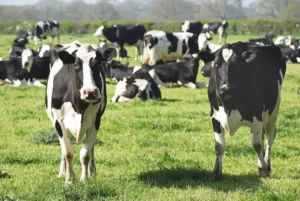Puppy teeth changing is an important stage that every pet owner needs to focus on. Below, let’s walk into the world of puppy teeth change, to understand the science and knowledge of it!
First, the time of puppy teeth change
Puppy’s tooth replacement period usually begins 2-3 months after birth and lasts until about 6-8 months. During this period, a puppy’s milk teeth will gradually fall out and be replaced by harder, more durable permanent teeth. The exact timing of the tooth replacement period may vary depending on the puppy’s breed, genetics and nutritional status.
Second, the process of puppy teeth replacement
Milk teeth growth: Puppies begin to grow milk teeth shortly after birth; these teeth are small and pointed and are used primarily for biting breast milk. As the puppy grows, the milk teeth will gradually grow in.
Eruption of permanent teeth
ring the tooth replacement period, the puppy’s permanent teeth begin to erupt from underneath or next to the milk teeth. The process of permanent tooth growth may be accompanied by some pain and discomfort, so the puppy may exhibit behaviours such as gnawing and chewing.
Loss of Milk Teeth: As the permanent teeth erupt, they loosen and eventually fall out. This process may take some time, and sometimes the milk teeth will fall out only after the permanent teeth come in.
Precautions for puppies during the teething period
Provide teething toys: In order to alleviate the discomfort of the puppy during the period of tooth replacement, you can provide it with some teething toys, such as dog chewing gum, teething sticks and so on. These toys can help puppies grind their teeth and reduce inappropriate behaviours such as chewing on furniture.
Observe the growth of teeth
Keep a close eye on your puppy’s tooth growth during the teething period. If you find that the permanent teeth have grown and the milk teeth are still not off, you should take the puppy to the pet hospital in time to ask a professional doctor to deal with it, so as not to affect the growth and arrangement of the permanent teeth.
Pay attention to oral hygiene
Puppies are prone to oral infections and other problems during the tooth replacement period, so it is important to maintain oral hygiene. You can brush your puppy’s teeth regularly or use pet-specific oral cleaning products to prevent oral diseases.
Calcium supplement
During the period of tooth replacement, your puppy’s bones and teeth are developing rapidly, so they need plenty of calcium. Calcium-rich foods such as milk and bone broth can be added to your puppy’s diet to meet its growth and development needs.
Soothe the emotions
Puppies during the period of tooth replacement may show anxiety and irritability due to discomfort. This is the time to give it enough love and soothing, can be through petting, hugging and other ways to reduce its discomfort.
Puppies need to pay special attention to their nutritional intake during tooth replacement to ensure healthy development of their teeth and bones. Here are the key nutrients that puppies need to supplement during tooth replacement:
Calcium
Calcium is an important foundation for tooth and bone growth. During tooth replacement, your puppy’s bones and teeth are developing rapidly, so they need a lot of calcium to support them. Calcium can be supplemented by feeding your puppy calcium-rich foods such as milk, cheese, tofu and fish bone meal. You can also choose dog foods that contain the right amount of calcium to meet your puppy’s daily needs.
Protein
Protein is essential for cell growth and repair, and is equally important for your puppy’s teeth and bone development. During the period of tooth replacement, you should provide your puppy with protein-rich food, such as chicken breast, fish and duck. Also, some high-quality dog foods add enough protein to meet your puppy’s needs.
Vitamin D: Vitamin D helps in the absorption and utilisation of calcium in the body and is vital for your puppy’s bone health. Vitamin D can be supplemented naturally by giving your puppy sunlight (taking care to avoid overexposure), or you can add some vitamin D-rich supplements to your food.
Phosphorus
Phosphorus is one of the most important elements that make up bones and teeth, and works with calcium to help maintain healthy bones and teeth. Phosphorus can be supplemented by feeding your puppy some phosphorus-rich foods such as egg yolks and animal offal.
Puppies also need to maintain adequate water intake during tooth replacement to promote metabolism and oral health. At the same time, avoid feeding your puppy foods that are too greasy, too hard or too stimulating to avoid adverse effects on the teeth and mouth.
Puppies during tooth replacement need to pay special attention to their diets, as inappropriate foods may adversely affect their teeth and oral health. Here are some of the foods that puppies need to avoid during tooth replacement:
Foods that are too hard: Puppies with changing teeth have more sensitive teeth, and foods that are too hard may irritate their gums and cause pain or bleeding. Therefore, you should avoid feeding your puppy overly hard foods such as bones and nuts.
Sticky foods: Sticky foods like fudge and marshmallows may stick to your puppy’s teeth, leading to bacterial growth and oral problems.
Human foods: many human foods contain ingredients that are not good for puppies, such as high sugar, salt, and fat, which may be taxing on the puppy’s mouth and digestive system. Foods such as chocolate, onions, and grapes, in particular, can be fatal to puppies.
Foods that are too greasy: Greasy foods may cause your puppy to have digestive problems and may also irritate their gums.
Sharp foods: Sharp foods such as fish spines and chicken bones may scratch your puppy’s mouth or oesophagus and cause infections.
Foods that are fragile or easily broken into small pieces: These foods can be easily swallowed by puppies accidentally, causing intestinal blockage or oesophageal obstruction.
During the period of tooth replacement, it is recommended to feed your puppy soft and easily digestible food, such as dog food softened with warm water and canned food for puppies. These foods meet the puppy’s nutritional needs and reduce irritation to the teeth and mouth. Meanwhile, in order to keep your puppy’s mouth healthy, you can provide it with some teething toys or bones on a regular basis to help them grind their teeth and clean their mouth.
In conclusion, during the tooth replacement period, make sure your puppy is getting enough nutrients such as calcium, protein, vitamin D and phosphorus to support the healthy development of their teeth and bones. At the same time, it is important to keep your puppy’s mouth clean and hygienic to avoid problems such as oral infections.
In conclusion, tooth replacement in puppies is an important physiological process that requires adequate attention and care. By providing teething toys, observing the growth of the teeth, paying attention to oral hygiene, calcium supplementation and calming the emotions, we can help the puppy to go through the tooth changing period smoothly, so that it can have healthy and beautiful teeth!
As Antigenne moves forward with its vision of revolutionizing animal disease detection, the launch of its own brand, Itgen, marks a significant milestone in the company’s journey. With six years of industry experience, Antigenne has built a solid foundation of knowledge and expertise in developing efficiently and accurate diagnostic reagents.
The creation of Itgen not only reinforces the company’s commitment to quality and innovation but also serves as a testament to its unwavering dedication to improving animal health and welfare. Together, we can make a difference. Contact Antigenne now and let’s unlock the future of animal health.




